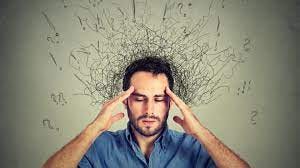In sports, having a set pre-game routine is considered crucial for athletes to get focused and in the right mindset before competition. For example, basketball players may listen to pump up music, visualize making baskets, and do dynamic stretching. Baseball players might pray, drink an energy drink, and chew gum in the dugout. Golfers could hit balls at the driving range, get a quick massage, and have a cup of coffee. Their pre-game routines help them mentally and physically prepare.
The same idea can be applied to chess. Adopting a pre-game routine can help chess players get "in the zone" before a big match.
Why Have a Routine?
A pre-game routine serves several purposes:
It gets you focused on the task at hand and blocks out distractions. Going through the same sequence of actions cues your brain that it's time to concentrate.
It reduces anxiety. Having a predictable routine lowers stress levels and instills confidence.
It activates muscle memory. Repeating certain physical actions engrains good technique.
It establishes optimal arousal levels. A steady routine brings your emotions, adrenaline, and mental alertness to ideal levels.
Look at what some of the top chess grandmasters do before their games:
One grandmaster goes for a long walk in the morning and listens to music.
Another drinks an energy drink and visualizes the game in his mind.
One legend would listen to pop music and stare at the ceiling.
Their pre-game routines help put them in the perfect state of mind to play their best chess.
Creating Your Own Routine
Your exact routine should be personal to you, but here are some elements you may want to incorporate:
Drink water - Proper hydration is key. Don't play chess dehydrated!
Stretch - Loosening up your body takes your mind off the game for a bit.
Deep breaths - Inhale and exhale slowly a few times to gain composure.
Visualize - Imagine yourself having a great game and winning. Envision the moves.
Silence phone - Eliminate electronics and other distractions.
Set up board - Methodically set up the pieces and board to put you in "chess mode."
Chess warm up - Do a few tactical puzzles to get your chess brain engaged.
Note goals - Remind yourself of 1-2 things to focus on that game.
The goal is to have a sequence of small actions that you repeat each time you play chess. Keep tweaking your routine until you find what works best. The whole process should take 10-15 minutes.
Your pre-game routine bookends the chess competition and completes the preparation process. Having a set routine will help develop consistency and get you dialed in. Get in the zone and play your best chess every time with the power of routine!


